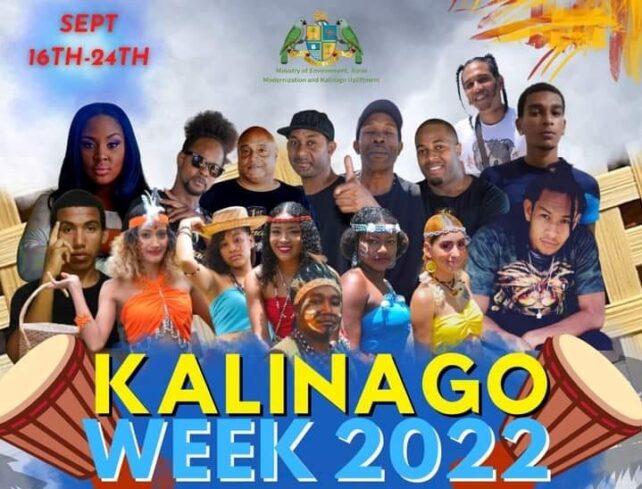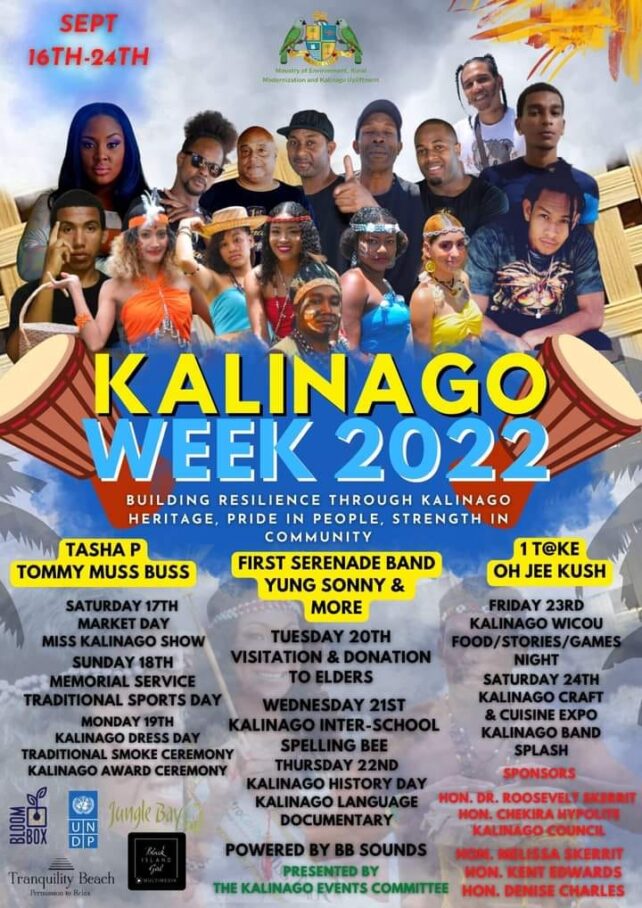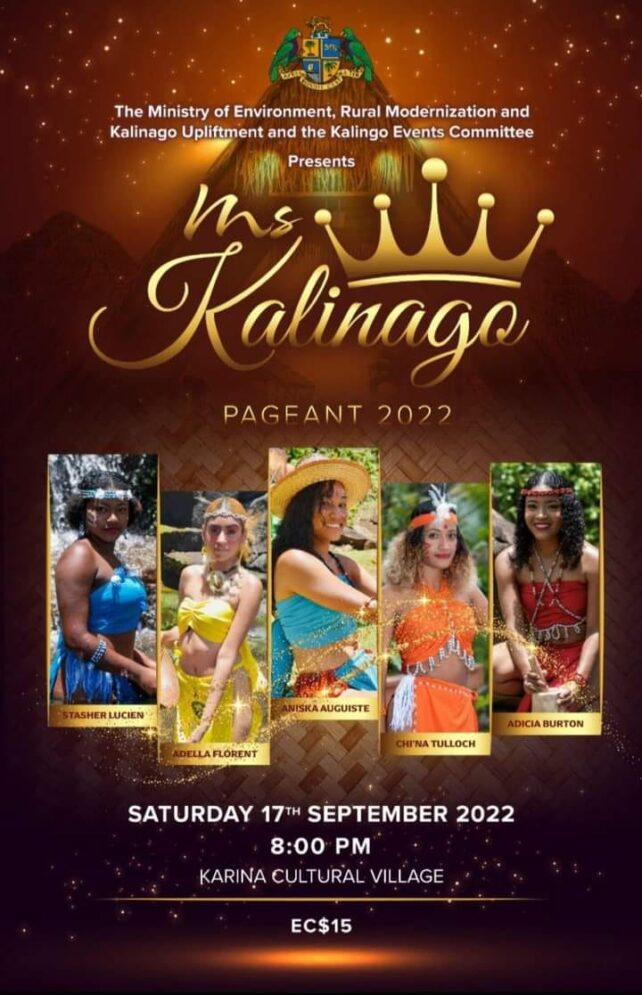
The 41st annual Kalinago Week will be held from today, September 16 to September 24, 2022. This year’s theme is focused on building resilience through the Kalinago heritage – pride in its people and strength within the community. Filled with cultural traditions, Kalinago Week seeks to highlight the resilience of one of the last surviving indigenous peoples in the world.
The week historically falls during the month of September – the same month that the 1930 Kalinago uprising occurred. Kalinago Week pays homage to the resistance against invasions from Leeward Island law enforcers who attempted to halt their local and traditional trade with neighboring countries.
“The Kalinago people have made a significant contribution to Dominica’s Creole culture and heritage,” said Kimberly King, Discover Dominica Authority Destination Marketing Manager. “It is with pride that we celebrate their traditions and cultural practices during this week, beginning on September 16.”
The Kalinago are believed to have originated from South America and represent the remaining original peoples of the pre-Columbian ‘Carib’ Indians dating back to approximately 3000 B.C. After the arrival of Christopher Columbus and European settlers in Dominica, the Kalinago fled to the isolated eastern side of the island — taking with them rites, rituals, and a way of living reaching back to the island’s original settlers. The British gained full control of the island in 1763 with the Kalinago remaining on 232 acres of land that was allotted to them. Their territory was expanded to 3,700 acres in 1903, and the island won its independence in 1978. Their rich language and deep connection to nature can be heard in their name for their island, “Waitukubuli,” meaning “tall Is her body.”
“The Kalinago community is thrilled to present our 41st annual Kalinago Week,” said Prosper Paris, Cultural Officer in the Ministry of Environment, Rural Modernization and Kalinago Upliftment. “We are especially excited to present our traditional cuisines, language, dances, games, and cultural practices to those who have yet to experience Dominica’s first people.”
Activities celebrated throughout Kalinago Week include the Princess Natari and Miss Kalinago showcases; a memorial service paying homage to the last surviving victim of the 1930 Kalinago Resistance; traditional sports day; Kalinago dress day; school visits by the Kalinago Council and Chief; the Kalinago Interschool Spelling B Competition; school debates; traditional storytelling; a food and craft exposition offering cultural cuisines; and the Kalinago’s Got Talent Night.
For more information on Kalinago Week, visit Kalinago Barana Aute Facebook page
https://www.facebook.com/kalinago.baranaaute
About Dominica
Dominica (pronounced Dom-in-EEK-a, and not to be confused with the Dominican Republic) is the youngest Caribbean Island and the last to be colonized, ultimately earning its independence on November 3, 1978. Dominica lies south of Guadeloupe and north of Martinique in the Eastern Caribbean. Air travelers can connect to Dominica direct from Miami on American Airlines, and make regional connections on Air Antilles, Air Sunshine, Coastal Air Transport, InterCaribbean
Airways, LIAT, Caribbean Airlines, Silver Airways – (Code share: American Airlines, Delta, JetBlue), from the surrounding hubs of Antigua, Barbados, Guadeloupe, Puerto Rico, St. Maarten, St Lucia, the British Virgin Islands, and the U.S. Virgin Islands. If travelling by sea, travelers may connect to Dominica on L’Express des Iles ferry service from Guadeloupe, Martinique, and St. Lucia, and on Val’Ferry from Guadeloupe and Martinique. *Travel restrictions may apply due to the
coronavirus pandemic. Please verify schedules with air and sea carriers.



Can you watch the fetsivities from abroad?
I wish these long suffering, beleaguered brothers and sisters not only a successful week of celebrations, but a bright future.
I wish to witness more economic activity in the territory and a rise in their living standards. Nothing but love for the Laminator people.
Kalinago people (correction)
Great that the Kalinagos are trying to maintain their culture. There are many of our foreparents who were Kalinagos. According to Paul Alexander (Lawah), the Kalinagos who lived along the Grand Bay coastline were forced to take to the interiors of the mountains such as Fond St. Jean and Petite Savanne because when the enslavers built their wooden crosses the Kalinagos would break them up since that was not a part of their culture. As the writer said, they had “a way of living” and religion was not a part of it. It is a great thing to know one’s culture and most of all to keep it.
I applaud my Kalinago people for continuing to keep the culture.